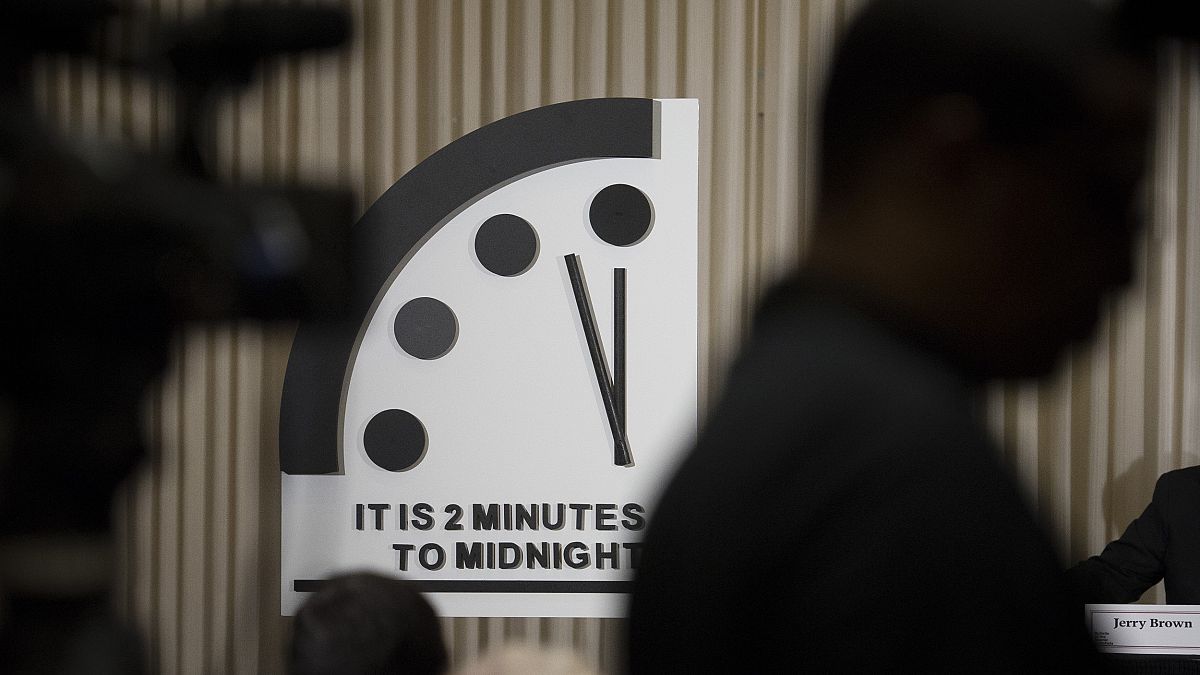The Bulletin adjusted the clock to reflect human-caused threats such as nuclear weapons and accelerated global warming.
Scientists warned Thursday that Earth is inching closer to disaster.
The Bulletin of the Atomic Scientists moved its symbolic Doomsday Clock closer to midnight, indicating that the likeliness of a human-caused apocalypse has increased since last year.
The Bulletin adjusted the clock to reflect human-caused threats such as nuclear weapons and accelerated global warming.
The clock is now set at 100 seconds to midnight. It's the first time the clock has been set within the two minute mark.
"We have normalized a very dangerous world in terms of the risks of nuclear warfare and climate change," Robert Rosner, chair of the Bulletin's Science and Security Board, said in a public briefing.
The last time the Doomsday Clock's minute hand was moved was in 2018, when the Bulletin, a nonprofit organization that oversees the Doomsday Clock, set the timepiece at two minutes to midnight — the closest humanity has inched to symbolic doom since 1953, during the Cold War.
The organization kept the two-minutes-to-midnight setting in 2019, citing what they called "multiple existential threats," including cyberattacks, nuclear arms races and ongoing climate change.
The Bulletin of Atomic Scientists was founded in 1945, and the group has maintained the Doomsday Clock since 1947. Each year, the organization consults with a board of sponsors that includes 13 Nobel Laureates to analyze a range of threats to determine whether the Doomsday Clock's hands should be adjusted.
